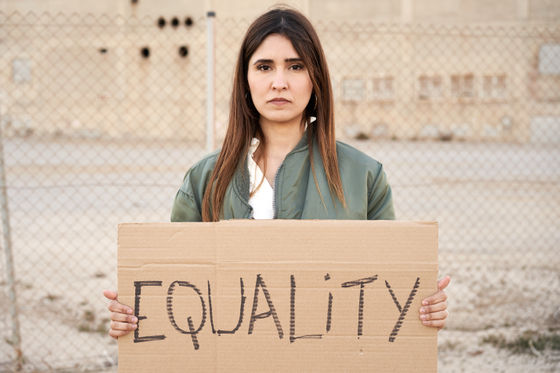It turns out that people misunderstand that 'when the disparity is closed, I lose', and emphasize being wealthy compared to people rather than absolute affluence.

Most people would say that equality is better when asked, 'Which is right, equality or inequality?' However, the efforts that governments and businesses propose to achieve equality and eradicate inequality are not always welcome. Behind these contradictions, new research shows that those in an advantageous position tend to take equality negatively and misunderstand that inequality benefits them.
If you rise, I fall: Equality is prevented by the misperception that it harms advantaged groups
Despite ideals, people don't really like reducing inequality, study finds
https://phys.org/news/2022-05-ideals-people-dont-inequality.html
Past studies have shown that racial inequality is costing the US economy $ 16 trillion and that the persistent wage gap between men and women is detrimental to the global economy. It is known to amount to 160 trillion dollars (about 2K 1000 trillion yen).

'Despite the fact that inequality is so harmful, the reason why the disparity does not disappear from society is that people in an advantageous position misunderstand that' equality is a loss '.' A research team led by Drew Jacoby-Senghor of the University of California, Berkeley conducted an experiment asking about the impact of policies to reduce inequality.
A total of nine experiments involving 4197 Americans, mainly non-Hispanic whites, which are generally considered to be advantageous in American society, have policies that do not hurt those who are in an advantageous position even if the disparity is closed. It included policy themes that would benefit people in all positions by correcting equality.
For example, in one experiment, white non-Latin participants said, 'In 2018, white homebuyers received a large amount of mortgages from banks, but Latin homebuyers received very few home loans. After reading the report, 'Only was offered,' the policy of reducing or increasing lending to Latin people while maintaining the amount of lending to whites was given to white homebuyers. Do you think it will affect you? '

Loans to whites are maintained, so whether or not loans to Latin homebuyers increase or decrease, there is no direct relationship to white homebuyers, but participants said, 'Latin If the amount of loans to people increases, the amount of loans to white people will decrease. ' This misconception was true even for win-win policies that would benefit both white and Latin homebuyers.
Jacoby-Senghor commented on this result: 'The causes and solutions of inequality are complex, but people continue to misunderstand that even if they simplify it to something that everyone can live a better life with, they will lose. 'In our experiments, how wealthy we were compared to others was more important than absolute affluence. People clearly even when they benefit. , We consider the loss of relative superiority to be an absolute loss. '
Related Posts:
in Note, Posted by log1l_ks







